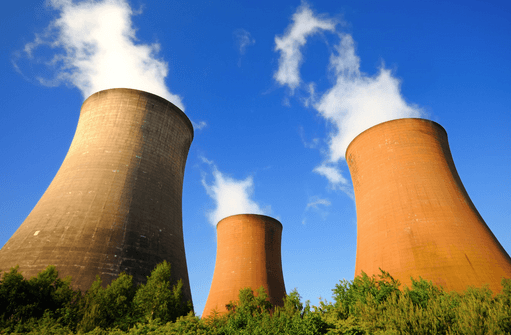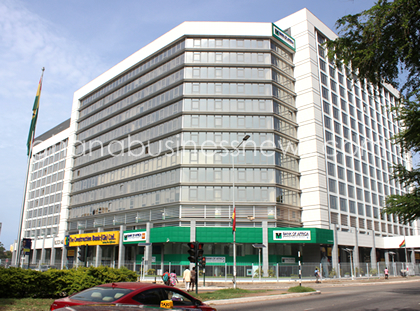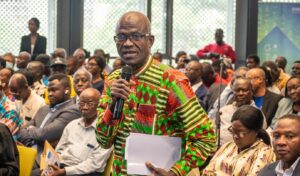
The Ministry of Energy and Green Transition, according to a myjoyonline.com report, has confirmed the suspension of the implementation of the Energy Sector Levies (Amendment) Act, 2025 (Act 1141), which was set to introduce additional charges of GH?1 on petrol and diesel, and 20 pesewas on liquefied petroleum gas (LPG).
The decision, according to the Ministry, was largely influenced by recent spikes in global oil prices and the need to cushion consumers against rising fuel costs.
The website quoted Richmond Rockson, Spokesperson and Head of Communication at the Ministry, as saying on Channel One TV that the government’s decision was a strategic response to current market volatility.
“I can confirm that the government of Ghana, as issued by the GRA, has postponed the implementation of the Energy Sector Levies (Amendment) Act, 2025 (Act 1141). This levy is what has introduced GH?1 on petrol, GH?1 on diesel and 20 pesewas on gas. So, yes, I can give you that confirmation,” he reportedly stated.
He (Rockson) attributed the deferment to a combination of domestic and international factors, including efforts to stabilise the cedi and the government’s broader objective to shield citizens from sudden fuel price surges.
“From February till date, a windfall was experienced on the fuel market as a result of the prudent management of the exchange rates, which has brought fuel prices from an average of GH?17 to an average of GH?11 or GH?12, depending on which Oil Marketing Company (OMC) you buy from,” he said.
In an earlier statement issued by the Commissioner of Ghana Revenue Authority (GRA), Anthony Sarpong, he said the Finance Minister, Dr Cassiel Ato Forson had instructed his outfit to put the implementation on hold.
Though these government officials did not specifically mention the Israel and Iran war, it is an undeniable fact that the suspension of the levy is deeply rooted in the conflict. Ghanaians woke up on Friday morning to see ballistic missiles flying over both Iran and Israel – two sworn enemies on planet Earth. Israel, which started the war, claims she is acting in self-defence because Iran is bent on developing nuclear weapons with the aim of wiping them (Israel) from the surface of Earth.
Iran, which is one of the super powers in the Middle East has responded to the Israeli attacks. Last night alone, the Arab state fired over hundred drones and ballistic missiles into the state of Israel, killing more than ten people. Israel had earlier hit the oil installations in the oil rich country, having on Friday succeeded in killing top military generals and scientists purportedly working on Iran’s nuclear project, which they insist is for peaceful purpose.
But as the Ghanaian adage goes, when two elephants fight, it is the grass that suffers. Both Israel and Iran are thousands of kilometres away from Ghana, but since the latter is a major oil producer in the world, any instability there affects the rest of the world.
As we put this piece together, crude oil prices have started going up at the international market, due to the Israeli-Iranian conflict.
This means despite the strong showing of the local currency – The Cedi – against world major currencies, local prices of petroleum products will soon start going up. If the government had, therefore, decided to implement the ‘Dumsor-Levy’, petrol prices would have gone beyond the reach of the ordinary Ghanaians.
This is why The Chronicle commends the Mahama government for suspending the implementation of the ‘Dumsor-Levy.’
Obviously, the government has read the mood of Ghanaians and realised that there will be public outcry should the new levy be implemented in the midst of what is going on in the Middle East.
The Chronicle does not, however, see the move as a defeatist idea – it rather shows that President Mahama listens to the concerns of Ghanaians, which is an act of good governance.
In our view, the Dumsor Levy is for a good purpose, especially looking at the way the Independent Power Producers (IPPs) are threatening to shut down their plants due to the debts owed them by the government.
Suspending it, therefore, means that debt payment to these IPPs has also been suspended. The big question then is: where are we, as a state, going to get the money to pay the IPPs to ensure that our lights are kept on 24 hours? This is the big challenge, but at the same time President Mahama and his team should know that Ghanaians voted for them to think outside the box and solve their problems.
By the way, when is the road toll levy going to be re-introduced? If this levy was in place, it would have helped to ameliorate the plight facing Ghanaians at the moment. Nevertheless, it is our hope and prayer that the Israel-Iran conflict will soon be resolved by the international power brokers, to alleviate the plight of a developing country like Ghana.
The post Editorial: Suspension Of The Dumsor-Levy: Good Decision appeared first on The Ghanaian Chronicle.
Read Full Story






![Burkina Faso celebrates as Ibrahim Traore unveils made-in-Africa electric buses [Video]](https://sportal365images.com/process/smp-images-production/pulse.com.gh/11062025/8558c966-4f8d-4f59-bd16-80956686e33d.png)








Facebook
Twitter
Pinterest
Instagram
Google+
YouTube
LinkedIn
RSS